Events
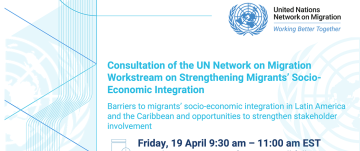



UN-Habitat, IOM and UNHCR propose to establish a dialogue with mayors and civil society from different cities in Latin America on the role cities can play in the inclusion of refugees and migrants.
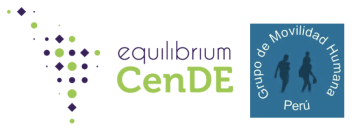
The Venezuelan exodus is impacting Latin America and the Caribbean (LAC) at a magnitude and speed never seen before. Since 2015, over 6 million people have left Venezuela, making it the second largest migration crisis in the world.

This side event is a unique opportunity to show how Member Countries of the Regional Conference on Migration (RCM), one of the oldest and most active regional consultative processes (RCPs) in the world, use the Global Compact for Safe, Orderly and Regular Migration (GCM) to identify regional
This side event, co-sponsored by the governments of Canada, Ecuador, Germany, Mexico, and the Philippines, in partnership with the Women in Migration Network and the Gender + Migration Hub, brings together stakeholders around the goal of building capacity for the operationalization and

The event seeks to promote joint learning about initiatives that are being promoted by NHRIs to protect the rights of migrants, with a particular focus on gender and childhood.

The Global Compact for Safe, Orderly and Regular Migration(GCM) rests on the Universal Declaration of Human Rights and the international human rights instruments.
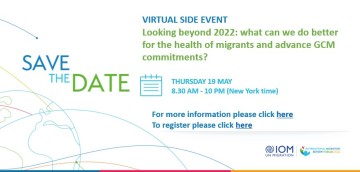
There are over 280 million international migrants, in which 35.5 million are children; many in irregular and precarious situations, often without full enjoyment of the right to health or access to healthcare. These inequities have been accentuated further during the pandemic.

This side meeting will provide a space for States and other stakeholders to exchange experiences on working to end child immigration detention, and to hear from others working on this issue, including an advocate with lived experience of immigration detention, a presentation by the International

The event aims to discuss the different regional experiences of the several vaccination strategies where the approach of people on the move and migrant people where or where not included, towards the fostering of future experiences sharing between governments, international cooperation, and academia

Gendered experiences in migration occur along a continuum (origin-, transit-, and destination country): based on a country’s policies, gender dynamics might premise the reason for migration but might also affect experiences along migratory routes and in destination countries.
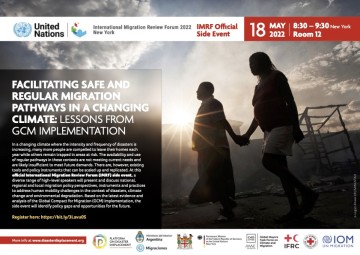
Every year, millions of people are compelled to move in the context of sudden-onset disasters, while the livelihoods of millions more are affected by slow-onset climate change and environmental degradation, with many leaving their homes, and others remaining trapped in areas at risk.

This panel will focus on portable justice, the right and ability of migrants to access justice at all stages of migration.

Policy discussions on migration and development focus mostly on host and origin countries.

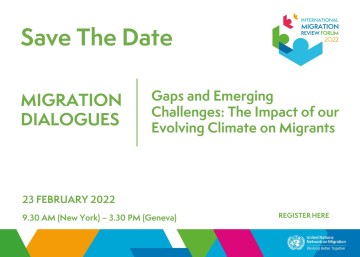


About the Migration Network Hub
What is the Migration Network Hub?
The Hub is a virtual “meeting space” where governments, stakeholders and experts can access and share migration-related information and services. It provides curated content, analysis and information on a variety of topics.
The Hub aims to support UN Member States in the implementation, follow-up and review of the Global Compact for Migration by serving as a repository of existing evidence, practices and initiatives, and facilitating access to knowledge sharing via online discussions, an expert database and demand-driven, tailor-made solutions (launching in 2021).
Submit your content
What content is displayed in the Hub?
The Hub aims to help you find information on migration, ranging from policy briefs and journal articles, existing portals and platforms and what they offer, to infographics and videos. The different types of resources submitted by users undergo peer review by a panel of experts from within the UN and beyond, before being approved for inclusion in the Hub. To provide guidance to users based on findings of the needs assessment, the content is ordered so that more comprehensive and global resources are shown before more specific and regional ones. Know a great resource? Please submit using the links above and your suggestion will be reviewed. Please see the draft criteria for existing practices here.
Apply to join the Peer Review Roster
Content submitted to the Migration Network Hub is first peer reviewed by experts in the field from both the UN and beyond. Applications are welcomed to join the roster on an ongoing basis. Learn more here.
Contact us
We welcome your feedback and suggestions, please contact us
*References to Kosovo shall be understood to be in the context of United Nations Security Council resolution 1244 (1999).
Newsletter
Subscribe to our newsletter.